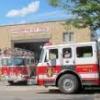
Eastchester FD: County mutual aid system is broken
Started by
NorthEndExpress,
-
Recently Browsing 0 members
No registered users viewing this page.

Started by
NorthEndExpress,
No registered users viewing this page.